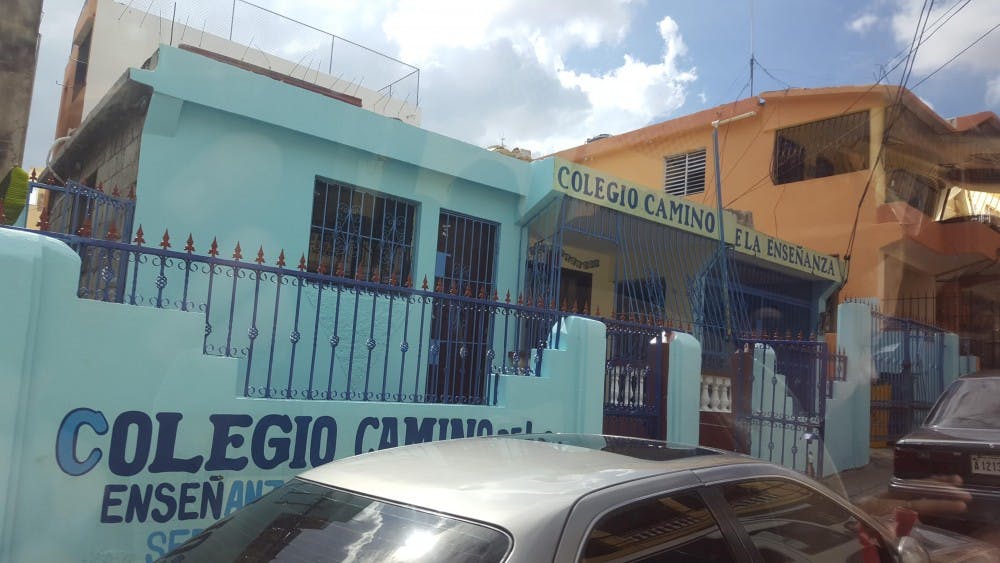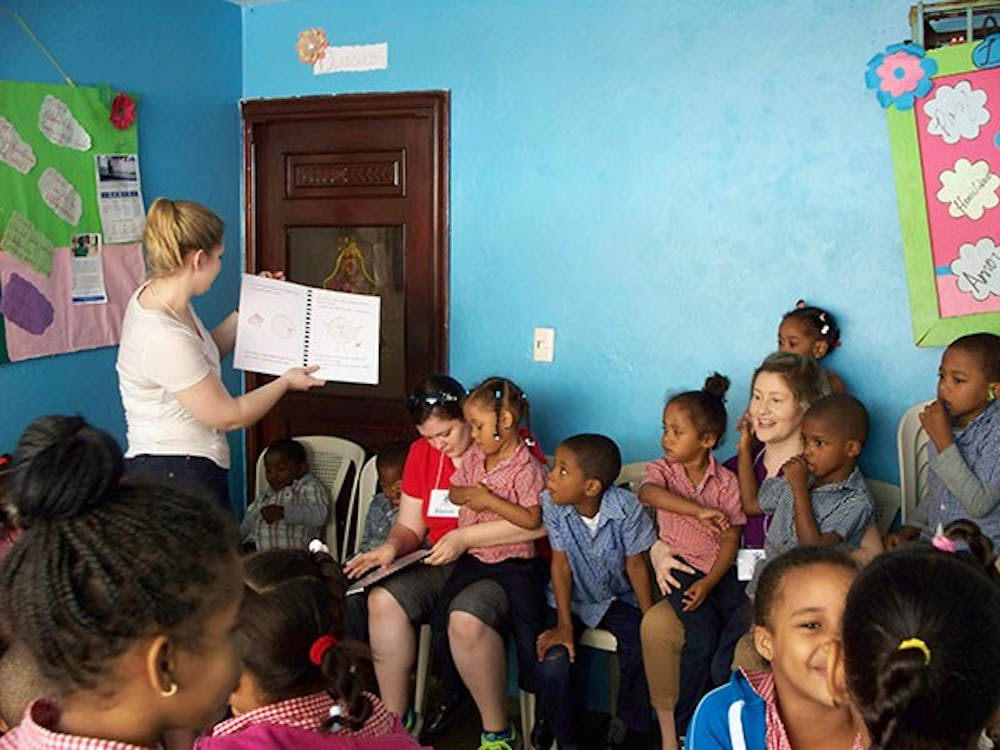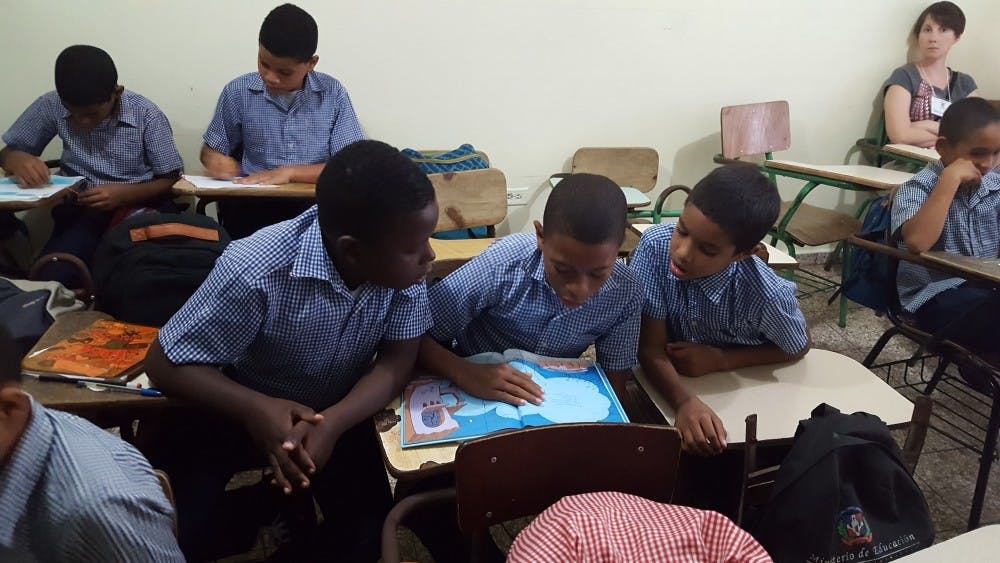In the coming weeks, following the end of the fall semester, Shippensburg University’s service-learning project, Reach Out, will be traveling to the Dominican Republic next month to gain hands- on teaching experience.
For the past nine years, Reach Out’s objective has been to provide curricular materials and support for the Pathways of Learning School in Santo Domingo. On Jan. 7, a group of about 10 students and three faculty members will make the trip to the Dominican Republic to work with the teachers at the school and help instruct the students.
Two Shippensburg seniors, Jessica Querry and McKenzie Horn, have been tasked with putting together the curriculum for the week. Both attended the trip last winter and were approached by faculty to lead the next trip for their capstone research project. This entails months of research and planning on Querry and Horn’s part in order to make the week run as smooth as possible. Horn says she started making preparations in the spring semester of 2017 and then continued to research through the summer before completing the manual in October.
This year the curriculum will be focused on social studies, which Querry and Horn have divided into sub categories like culture, geography and government. As education majors, the two could get this kind of experience as student teachers, but taking their curriculum to another country presents a completely unique but challenging experience.

The Pathways of Learning School is located in Santo Domingo, the capital of the Dominican Republic.
The biggest challenge mentioned by the two seniors is the language barrier.
“I study German here,” said Horn. “So it’s not the best, but luckily in my class we have a Spanish minor and one of the people we stayed with in the classroom spoke English.” Like Horn, most of the students who take the trip are not fluent in Spanish, but the teachers from the Pathways of Learning School as well as the Shippensburg University faculty are prepared to help them translate lesson plans and communicate with the class.
In order to help combat that barrier, Querry decided to utilize some techniques that transcend language.
“Visual things are very important whenever we go down there,” said Querry. “Throughout my manual there are a ton of pictures.” Teaching social studies in a different language is tough, especially for Querry and Horn, who have concentrations in other subjects. So having the visuals is almost a necessity.
What makes the trip special though, is the fact that it is open to students of any major. While Querry and Horn will be leading as education majors, there is a variety of departments being represented in the group. When it comes to the in- class teaching, the non-education majors may can feel uncomfortable and out of their element, but Querry and Horn have taken the time to get everyone on the same page.

The traveling students will teach children from grades K-4.
“We had presentations where we introduced our manual [to the group],” said Horn. “So everyone has been exposed to every single worksheet in English.”
While in the Dominican Republic, students will also have the opportunity to spend time outside the classroom. Throughout the week, the students will visit a few landmark spots in the Dominican Republic while also getting a sample of the culture.
“Each afternoon we go somewhere different,” Querry said. “We go to a culturally relevant place so we are normally the only tourists there.” The museums and monuments are fun to see but Querry mentioned how interacting with the locals and eating the native foods was one of the most exciting aspects of the trip.
Querry is excited to get started, but she has taken time to reflect on last year’s trip and how important it has been for her.
“As an education major, there is not much time to study abroad,” said Querry. “So it gives me a way to still have that study and teaching abroad experience but I’m only gone for a week and it’s affordable.”


The Slate welcomes thoughtful discussion on all of our stories, but please keep comments civil and on-topic. Read our full guidelines here.